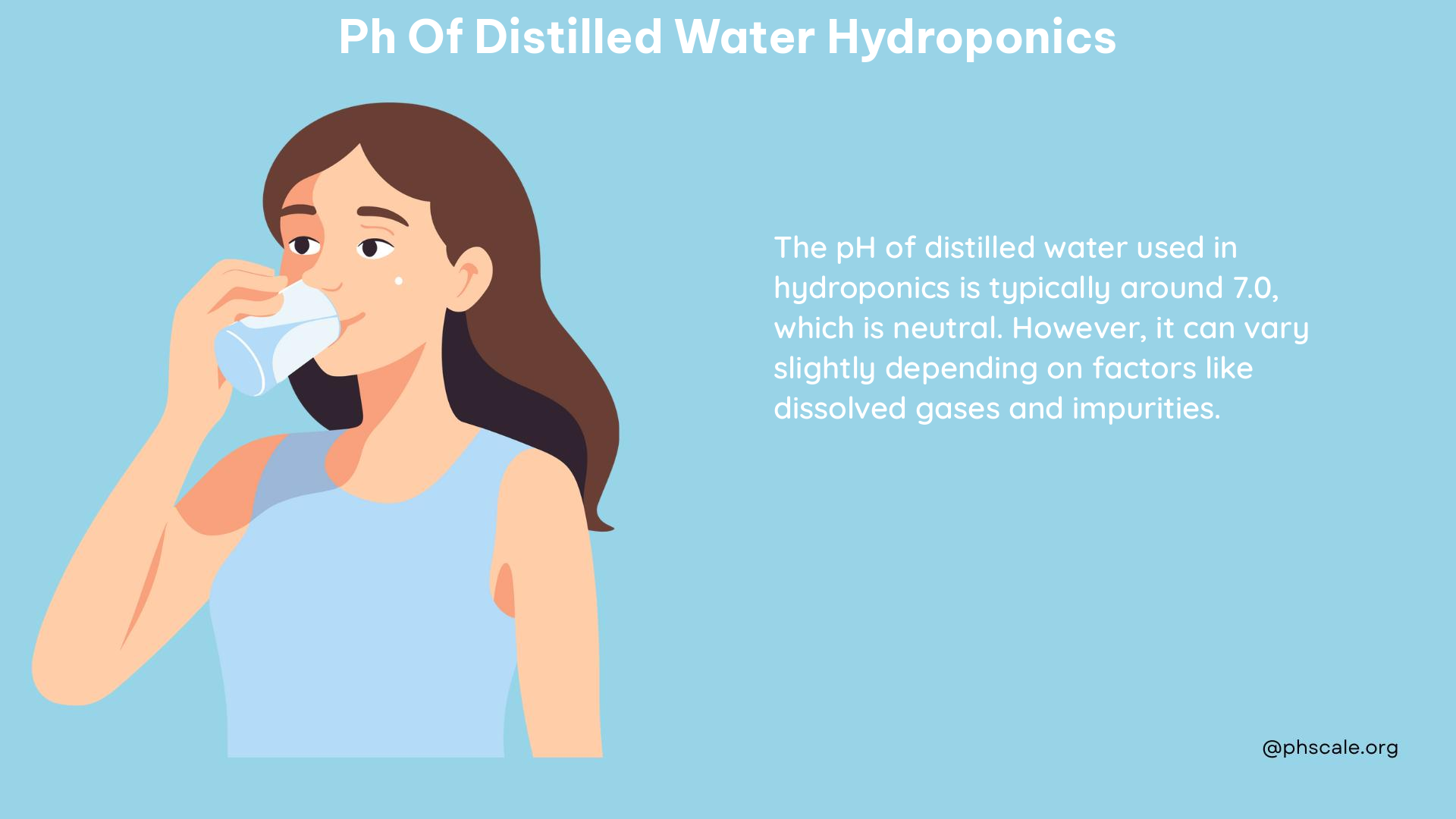Distilled water is a popular choice for hydroponic systems due to its purity and lack of contaminants. However, the pH of distilled water can be a challenge to manage, as it is prone to fluctuations that can impact plant growth. In this comprehensive guide, we’ll explore the importance of pH in hydroponic systems, the unique characteristics of distilled water, and strategies for maintaining a stable pH to ensure the optimal growth of your hydroponic plants.
Typical pH Range of Distilled Water in Hydroponics
Distilled water has a neutral pH of 7, which is an ideal starting point for hydroponic systems. This neutral pH provides a clean slate for adding the necessary nutrients without the interference of minerals or contaminants found in tap water.
Why Distilled Water is Not Recommended for Maintaining a Stable pH

While distilled water’s neutral pH is advantageous, it also presents a challenge in maintaining a consistent pH level. Distilled water is highly unstable and can easily absorb carbon dioxide from the air, causing its pH to shift towards more acidic levels. This instability makes it difficult to maintain the optimal pH range required for healthy plant growth.
pH Range for Hydroponic Plants
The ideal pH range for hydroponic plants typically falls between 5.5 and 6.5. This pH range ensures that the plants can effectively absorb the necessary nutrients from the hydroponic solution. Different plant species may have slightly varying pH preferences, so it’s essential to research the specific requirements of the plants you are growing.
Balancing pH in Hydroponics
To maintain a stable pH in a hydroponic system using distilled water, it is recommended to use commercial pH adjusting chemicals, such as pH Up and pH Down. These products are specifically designed to provide a controlled and reliable way to adjust the pH of the hydroponic solution. Homemade solutions like vinegar can be ineffective and may introduce unwanted elements to the system.
Contaminants and Chemicals in Distilled Water
One of the primary advantages of using distilled water in hydroponics is its purity. Distilled water is free from contaminants like arsenic, lead, and chlorine, which can be present in tap water. However, it is still susceptible to absorbing carbon dioxide, leading to pH fluctuations.
Solutions and Alternatives
To overcome the challenges of maintaining a stable pH with distilled water, it is recommended to use reverse osmosis (RO) water instead. RO water is also free from impurities and provides a neutral base for nutrient addition, making it easier to control the pH levels in the hydroponic system.
Helpful Tips for DIY Users
- Use pH test kits or meters: Regularly monitor the pH of your hydroponic solution to ensure it remains within the optimal range for your plants.
- Use commercial pH adjusting chemicals: Avoid using homemade solutions like vinegar, and instead, opt for specifically designed pH Up and pH Down products.
- Maintain a consistent pH: Gradually adjust the pH to avoid sudden changes that can shock plants.
- Monitor temperature and conductivity: Regularly check temperature and conductivity to ensure optimal conditions for plant growth.
By understanding the unique characteristics of distilled water and implementing effective strategies for maintaining a stable pH, you can create a thriving hydroponic system that supports the healthy growth of your plants.
References
- Rollitup. (2007). PH and distilled water. Retrieved from https://www.rollitup.org/t/ph-and-distilled-water.5369/
- My Pure Water. (n.d.). Distilled Water for Hydroponic Farming. Retrieved from https://mypurewater.com/hydroponic-farming/
- Reddit. (2021). Is Distilled water better at holding a lower ph? Retrieved from https://www.reddit.com/r/Hydroponics/comments/oil50m/is_distilled_water_better_at_holding_a_lower_ph/
- Happy Hydro Farm. (2020). Understanding & Maintaining pH in Hydroponics. Retrieved from https://hydrohowto.com/understanding-ph-in-hydroponics/
- AlpHa Measure. (2024). Optimizing Hydroponic Systems. Retrieved from https://alpha-measure.com/optimizing-hydroponic-systems/.
